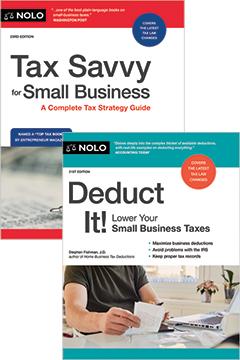The National Labor Relations Board's decision that Uber drivers are independent contractors means that drivers have no federal right to unionize.
If you work as a driver for Uber, the company classifies you as an independent contractor for tax and other legal purposes. This means you get none of the legal protections given to employees under federal labor law, such as the right to a minimum wage, overtime pay, and the right to unionize.
Some Uber drivers have been trying to get the courts and government to reclassify them as employees of Uber instead of independent contractors. Uber has been fighting against this tooth and nail. Now, the Trump Administration has handed Uber a big victory. The National Labor Relations Board (NLRB) general counsel has issued an advice memorandum finding that Uber drivers are independent contractors for purposes of the National Labor Relations Act. This is the federal law that guarantees employees the right to unionize. As a result, the NRLB will dismiss several complaints by Uber drivers that the company interfered with their unionization efforts.
The NLRB decision does not resolve or impact whether Uber drivers or other gig workers are employees or independent contractors for purposes other than the right to unionize under the National Labor Relations Act. For example, Uber drivers may still seek to be classified as employees for purposes of taxes, and state and federal minimum wage and overtime laws. These issues are determined under state and federal tax and employment laws. Suits by Uber drivers and other gig workers on these issues are ongoing in many states.
Why the NLRB Said Uber Drivers Are Independent Contractors
To determine whether a worker is an employee or independent contractor for purposes of the federal labor laws (and most other laws), government agencies and courts use the common law right of control test. Under this test, a worker is an employee if the hiring firm has the right to control the worker on the job. Lack of control means the worker is an independent contractor.
The NLRB looks at ten main control factors, including such things as the skill required to do the job (low skill workers are more likely to be employees), whether the worker provides the tools needed to do the job, and whether the work is part of the hiring firm's regular business. In the shared-ride and taxicab industries, the NLRB gives significant weight to the extent of the company's control over the manner and means by which drivers conduct business. However, the NLRB also says that a hiring firm's control over a worker must be assessed in the context of its effect on "entrepreneurial opportunity."
The NLRB counsel concluded that Uber drivers are independent contractors because they have virtually complete control of their cars, work schedules, and log-in locations. They are also free to work for competitors of Uber. All of these factors provide them with significant entrepreneurial opportunity. In the words of the NLRB counsel "on any given day, at any free moment, UberX drivers could decide how best to serve their economic objectives: by fulfilling ride requests through the App, working for a competing ride-share service, or pursuing a different venture altogether."
Also, the drivers had to provide their own cars, giving them a significant capital investment in their work, something employees ordinarily don't have. They also understood that they were independent contractors.
All of these factors outweighed several other factors that pointed to employee status, including that Uber limited drivers' selection of trips, established fares, and retained portions of drivers' fares under a commission-based system that usually supports employee status. The NLRB counsel likewise discounted other factors supporting employee status—the low skill required to be a driver, and the fact that drivers operated as part of Uber's regular business, and not in a distinct business or occupation.
Impact of NLRB's Decision to Classify Drivers as Independent Contractors
The NLRB's advice memorandum does not establish a nationwide precedent on the right to unionize that every government agency in every state must follow. However, it means that Uber drivers and other similar gig workers who want to form unions can forget about getting any help from the NLRB. As far as it's concerned, Uber drivers have no federal right to unionize.
However, Uber drivers and other gig workers who seek to form unions can still seek help from state labor departments under the labor laws of the states in which they drive. These laws vary from state to state, as do states' willingness to enforce them. Some states may agree with the NLRB's decision; others may not.



